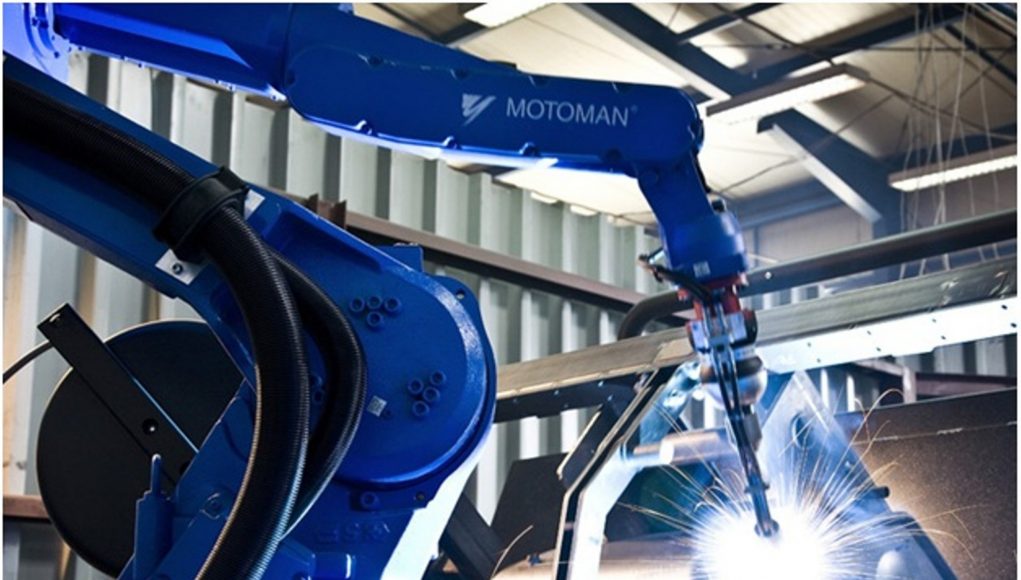Future of Industrial Automation and Robotics in Manufacturing Engineering
Industrial Automation and Robotics – Increasing production costs, reduced operational margins, limited scope for expansion and diversification as well as unavailability of skilled manpower are hampering the growth of industries across the globe.
Luckily, we are living in an era where disruptive technologies are redefining traditional businesses and unleashing new possibilities in Manufacturing. The need of the hour is to choose the right technology that enables the seamless transition of business infrastructure and ensures the achievement of maximum ROI for the technology investment.
Today, we stand at the cusp of the next big industrial revolution – Industry 4.0 – Industrial Automation and Robotics in India.
New technologies such as 5G, AI, Digital Twins, Virtual & Augmented Reality, Edge and Cloud solutions will shape the future of Manufacturing. Global Experts agree that Industry 4.0 will be powered by Automation and Robotics.
Automation will be driven by the need to remove redundant and hazardous job roles, improve quality by eliminating errors, maximize productivity and reduce manufacturing costs. Cheaper, more capable and flexible technologies are accelerating the growth of fully automated production facilities. “Dark factories”, where manufacturing process are handled entirely automatically – is becoming an increasingly common attribute of Modern Manufacturing.
Today’s automation systems have capabilities that enable their use in hitherto unexplored avenues and allows for the identification for new sources of value in Manufacturing. Advances in computing and networking technologies have improved the ease of integration of automation systems into existing systems. Automation systems have become plug and play, self-monitoring solutions, thereby improving their ease of use.
Automation systems are becoming increasingly more agile, flexible and intelligent, thereby adapting their behaviour automatically to maximize output or minimize cost per unit. Advent of Automated Guided Vehicles (AGVs) allows plants to reconfigure the flow of products and components seamlessly, thus allowing manufacturing sequences with different processes to be completed in a fully automated mode.
Robots have become ubiquitous on the industry floors across the globe. Usage of Robotics enables a level of quality, accuracy and productivity beyond human ability – even in hazardous environments.
Today’s robots are easier to program and use, have an ability to learn on – the – go powered by AI and are equipped with capabilities like voice and image recognition, which enables them to re-create complex tasks. Other drivers for increasing penetration of industrial robots include declining product life cycle, increasing need for operational excellence through continuous modernization/expansion and acute shortage of skilled labour.
Over the past 30 years, the average robot price has fallen by half, and even more when compare to labour costs. Integration of Laser, vision systems, spectral imaging and big data with Robotic systems have made them smarter.
Automation and Robots offer a shift towards a low volume / high mix manufacturing environment. Basically, this will enable small companies to access robot technology for niche, low volume production, and larger ones could increase the variety of their product offerings. Advances in artificial intelligence and sensor technologies will allow robots to handle higher variability in production.
Perhaps the most significant trend in the global robotics market is the advent of Collaborative Robots (or Cobots). This new generation of lightweight robots enables man and machine to work closely and safely together – without fences. Cobots are expected to disrupt SME manufacturing and will drive the adoption of robots by small and medium enterprises (SMEs).
One of the leading Cobots in the World is the Yaskawa Motoman HC10 Cobot, which is extremely slim and can be optimally integrated even in small spaces. Adoption of Cobots in industries is expected to grow at a CAGR over 60% by 2021.
Emergence of business models such as Robots-As-A-Service (RAAS) is enabling companies operating in niche industries and SMEs to improve the adoption of Robots in their manufacturing process whilst saving on upfront investments and operating expenses. Almost 30% of global robotic applications are expected to follow RAAS business model in the next five years.
Usage of Industrial Robotics has increased tremendously in India, which is further driven by initiatives such as Make in India by Government of India (GoI) that focuses on domestic manufacturing and indigenous product development. As per the Wold Industrial Robotics Report 2017 by International Federation of Robotics, the robot sale in India has increased by 27 percent YoY in 2016. This is expected to triple by 2020 with a Compound Annual Growth Rate of 26 percent.
Sustainable manufacturing process such 3D printing has taken the manufacturing World by storm. 3D printing allows for the seamless creation of tangible products using a single machine whilst reducing waste. It offers major time savings in the conceptualization, prototyping and production phases.
Advancements in Cloud Computing, Industrial IoT and Smart Sensors are other another major trend in the manufacturing sector. Smart sensors can record, communicate data and collect feedback and monitors the system to trigger emergency responses if a safety or performance issue arises. With Industrial IoT, factories can make real – time decisions by tracking and analysing production data and create models of predictive maintenance to reduce overall down-time.
Cloud computing enables factories to retrieve and analyse production data and improve the overall efficiency. Data from augmented and virtual reality has a significant impact on R&D to enable faster, cheaper and high-quality production. Overall, Automated systems are expected to drive innovation and excellence in manufacturing.
Shift to smart manufacturing with Today, Industrial Automation and Robotics will result in long term savings that will translate to higher profits, more jobs and stronger economies, ushering in a new era of production.

Ezhilmaran Arumugam, Co – Founder & Director, Axis Global Automation Group and Axis Global Institute of Industrial Training serving across India, Middle East, Sri Lanka and Far East is a Electrical and Electronics professional Spearheading the group’s techno – commercial activities. A technophile at heart, he has been instrumental in diversifying the group interests in new verticals and launching advanced solutions in Robotics, Machine Vision Systems, IIoT, Industry 4.0 etc.









